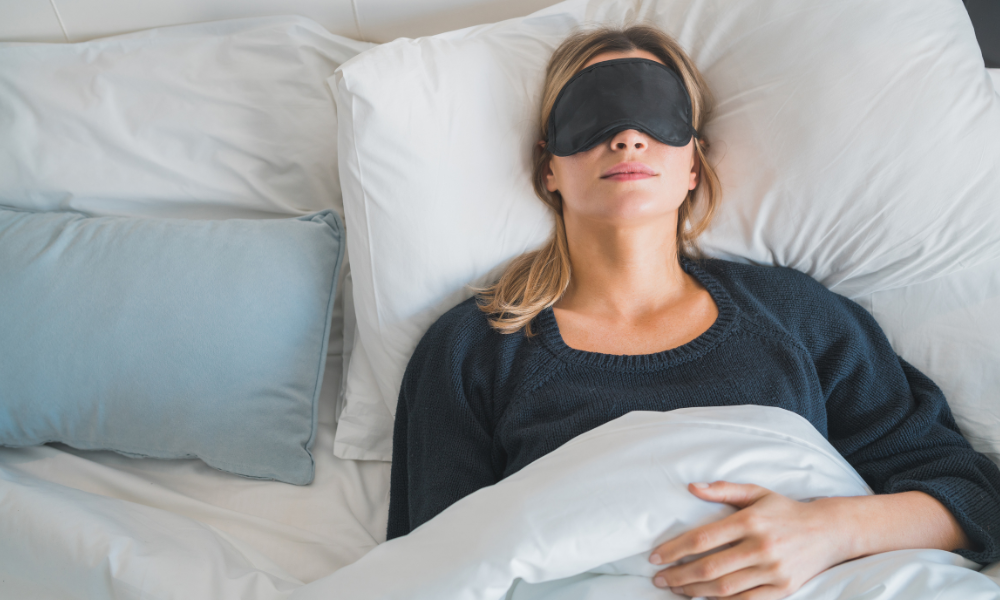
Sleep apnea is more than just disruptive snoring. It’s a medical condition that prevents the body from getting deep, restorative rest. For many, each night brings pauses in breathing, gasping for air, and restless sleep—followed by mornings filled with fatigue, poor focus, and low energy.
At the Columbia Center for Sleep Apnea and TMJ, Dr. Jared Bloxham helps patients uncover the underlying cause of sleep-disordered breathing and guides them toward effective treatment options. By addressing sleep apnea early, you can protect your health and reclaim your energy.
What Exactly Is Sleep Apnea?
Sleep apnea happens when airflow is repeatedly blocked during sleep. This may be due to a narrowed or collapsed airway (obstructive sleep apnea) or, less commonly, the brain not sending the correct breathing signals (central sleep apnea).
People often live with sleep apnea without realizing it. If you find yourself constantly tired, unfocused, or waking up unrefreshed, it could be the result of these nighttime breathing disruptions.
Warning signs to watch for include:
- Loud, ongoing snoring
- Waking suddenly with a choking or gasping sensation
- Dry mouth or sore throat in the morning
- Frequent morning headaches
- Difficulty staying asleep
- Excessive tiredness during the day
These symptoms do more than disturb your rest—they can interfere with your daily life, relationships, and long-term health.
Why Untreated Sleep Apnea Is a Serious Risk
Ignoring sleep apnea can take a toll on both your body and mind:
- Cardiovascular Stress – Breathing interruptions reduce oxygen levels, putting strain on your heart and raising the risk of arrhythmias, heart attack, or stroke.
- High Blood Pressure – Oxygen dips during sleep can cause spikes in blood pressure, which may lead to chronic hypertension.
- Emotional & Mental Strain – Lack of quality sleep can increase irritability, mood swings, and the risk of anxiety or depression.
- Reduced Daytime Performance – Daytime drowsiness makes it harder to focus, lowering productivity and sometimes creating safety risks (like drowsy driving).
Dr. Bloxham emphasizes that while snoring may seem harmless, sleep apnea has far-reaching effects on your overall health if left untreated.
Spotting the Condition Early
Recognizing the warning signs is the first step toward better sleep. Persistent snoring, frequent awakenings, or unexplained fatigue are strong indicators that something more than “just snoring” is going on.
At the Columbia Center for Sleep Apnea and TMJ, Dr. Bloxham provides comprehensive evaluations that take into account your airway health, dental concerns, and TMJ function to create a complete picture of your sleep health.
Treatment Options at Columbia Center for Sleep Apnea and TMJ
The right treatment depends on your unique needs. At our office, care is centered around comfortable, effective, and non-invasive solutions:
- Custom Oral Appliances – Small, comfortable devices that reposition the jaw to keep the airway open during sleep. These are a proven alternative to CPAP machines for many patients.
- Integrated TMJ & Orofacial Pain Care – Because jaw joint problems and airway issues are often linked, Dr. Bloxham’s specialized training ensures your appliance is designed with your jaw health in mind.
- Collaborative Approach – When necessary, we partner with medical providers to make sure every aspect of your sleep apnea treatment is addressed.
Take the First Step Toward Better Sleep
Getting treatment for sleep apnea can transform the way you feel each day. Patients often notice improved energy, sharper focus, and better moods once they begin addressing their sleep disorder.
If you’re ready to stop feeling tired and start experiencing restful nights again, schedule a consultation with Dr. Jared Bloxham at Columbia Center for Sleep Apnea and TMJ. Together, we’ll find the right solution to help you breathe easier, sleep soundly, and protect your long-term health.
📍 Serving Kennewick, Richland, Pasco & Eastern WA | 🌐 www.columbiatmjandpain.com











